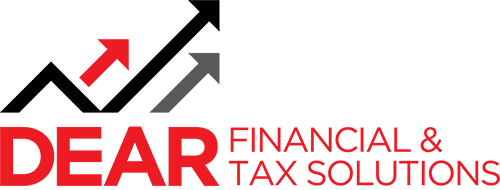As a self-employed professional, filing your taxes can seem daunting, particularly when it comes to understanding and maximizing your Schedule C deductions. Unlike traditional W-2 employees, self-employed individuals have both the challenge and opportunity of reporting their income and expenses, which directly impacts their taxable income and overall financial health. Schedule C, or Form 1040 Schedule C, allows self-employed professionals to report income and business-related deductions to reduce tax obligations effectively. To make the most out of this, it’s critical to understand what expenses you can deduct and how to strategically manage your deductions throughout the year.
At Dear Financial & Tax Solutions, we’ve helped numerous self-employed professionals leverage Schedule C deductions to significantly reduce their tax burden. In this article, we’ll guide you through the essential deductions every self-employed individual should understand and utilize for optimal tax savings.
Understanding Schedule C: The Basics
Schedule C is the primary form self-employed professionals use to report income and losses from business activities. Whether you’re a freelancer, consultant, sole proprietor, or operate a small business, Schedule C helps you calculate your net income by deducting allowable business expenses from your gross earnings.
Maximizing your Schedule C deductions requires accuracy, consistency, and awareness of IRS regulations. Doing so correctly can translate into significant tax savings, leaving you with more capital to reinvest into your business or personal financial goals.
Key Schedule C Deductions You Should Consider
Below are some of the most common and impactful Schedule C deductions for self-employed professionals:
Home Office Deduction
If you maintain a dedicated space in your home used exclusively for business activities, you may be eligible for the home office deduction. The deduction can be calculated using either a simplified method (a fixed rate per square foot) or the actual expense method, which considers a portion of household expenses such as rent, mortgage interest, utilities, and insurance.
Business Supplies and Equipment
Expenses related directly to running your business—such as office supplies, software subscriptions, computers, printers, and other necessary equipment—are fully deductible. Keeping accurate records and receipts of these expenses throughout the year is crucial.
Vehicle and Mileage Expenses
Self-employed professionals who use their personal vehicle for business purposes can deduct expenses related to business mileage. You may either claim the standard mileage deduction (an IRS-set rate per business mile driven) or deduct actual expenses, such as gas, maintenance, insurance, and vehicle depreciation, proportionate to business use.
Advertising and Marketing Costs
All marketing expenses, including website hosting, digital advertising, social media marketing, print ads, business cards, promotional materials, and sponsorships, are deductible as long as they directly promote your business.
Professional Fees and Subscriptions
Fees for professional services—such as accounting, bookkeeping, tax preparation, legal advice, and consulting services—are fully deductible. Additionally, professional subscriptions, industry-related publications, memberships, licensing, or certification fees also qualify.
Travel and Meal Expenses
If your business involves traveling to client meetings, conferences, or other business-related activities, expenses such as transportation costs, lodging, and meals can be deducted. For meals, the deduction is typically limited to 50% of the actual costs, although some exceptions may apply.
Health Insurance Premiums
Self-employed professionals who purchase their own health insurance coverage may be eligible to deduct health insurance premiums directly from their taxable income, providing significant tax savings.
Retirement Contributions
Contributions made to retirement accounts specifically for self-employed professionals—such as SEP IRAs, SIMPLE IRAs, or solo 401(k)s—are deductible. These deductions not only reduce your tax liability but also strengthen your long-term financial security.
Education and Training Expenses
Costs associated with continuing education, training courses, or workshops directly related to maintaining or improving your professional skills are deductible. These include tuition, books, online courses, and seminars.
Business Insurance
Premiums paid for business liability insurance, professional liability coverage, or other specialized insurance products needed for your line of work are fully deductible.
Best Practices for Maximizing Deductions
To fully benefit from Schedule C deductions, follow these strategic tips:
Keep Accurate Records
Maintaining clear and organized financial records year-round is essential. Proper recordkeeping ensures you capture every eligible deduction and provides the necessary documentation if you’re ever audited.
Separate Business and Personal Expenses
Use dedicated business bank accounts and credit cards to simplify expense tracking. Clearly separating your business expenses helps ensure accuracy in deductions and compliance with IRS requirements.
Stay Informed About Tax Law Changes
Tax laws evolve frequently. Working with a professional, such as an Enrolled Agent or experienced tax professional like Dear Financial & Tax Solutions, ensures you remain aware of relevant updates, regulations, and opportunities to maximize deductions legally.
Plan Strategically
Proactive tax planning is key. Strategically timing significant purchases, equipment upgrades, or business investments can maximize your annual deductions and overall tax benefits.
How Dear Financial & Tax Solutions Can Help
Navigating Schedule C deductions can be complex, but it doesn’t have to be overwhelming. At Dear Financial & Tax Solutions, we specialize in helping self-employed professionals optimize their deductions, streamline tax filing, and reduce overall tax burdens effectively. Our personalized approach focuses on comprehensive tax planning, accurate recordkeeping guidance, and strategic advice that empowers you to confidently manage your finances year-round.
Our services include:
- Expert guidance on Schedule C deductions and tax planning
- Accurate and compliant tax preparation
- Customized financial strategies tailored specifically for self-employed individuals
- Proactive, year-round financial advice and tax consulting
Ready to optimize your self-employed tax situation? Contact Dear Financial & Tax Solutions today to discover how our comprehensive financial and tax solutions can support your success.

